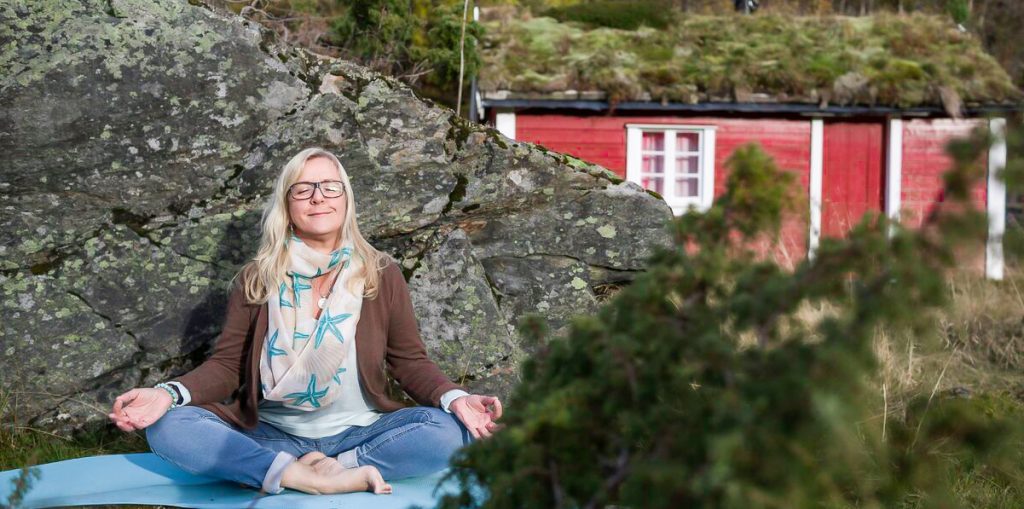5 Quick Tips on How To Strengthen Your Lungs

A common symptom of Covid-19 is that your breathing is affected, since this virus is likely to attack the airways and lungs. Studies show that breathing exercises both strengthens and cleanses the lungs. So whether your ill or healthy, has had – or currently is suffering of Covid-19, be sure to inhale deeply and exhale completely when you breathe. Your breath keeps your body oxygenated, but your breath also stretches and exercises your diaphragm, and muscles in your ribcage. “If the lung capacity is reduced, it’s even more important that your lungs are in physical good condition, says Leif Bjermer, Professor of Heart and Lung Disease at the University of Lund, Sweden”.
If you suspect, or know, that you have contracted Covid-19, you should at an early stage make sure that you’re getting enough fluid, and exercise your lungs, says Johan Styrud, Chief Physician of Danderyds Hospital, Stockholm Sweden. Even if you’re not ill, you will benefit from a breathing exercise. The effects are showing early on, since your breath affects the immune system, blood pressure, digestion, and your mental health. Breathe through your nose and you’ll stimulate the circulation in the lung tissue, and you’re filling your lungs better then by breathing through your mouth.
Here are five different techniques and tips on how you can strengthen your lungs. And you can always practice this breathing exercise whenever, or wherever you are, since you always have your breath with you.
Start your journey towards stronger lungs and better lung capacity immediately. Inhale and…
- Strengthen Your Lungs And Heart With Long, Deep Breaths
Let your belly relax so it can expand when you inhale through your nose. Breathe in so that your chest is expanding. Briefly pause, then exhale through your nose in your body’s own tempo. Exhalation is automatic when you relax your body. Help your body expel all the air from your lungs by gently pulling your belly in, to get a better start on your next breath. Hold your breath, then breathe slowly in through your nose when your body gives you the signal that it’s time to inhale. Breathe in, mini pause, breathe out, and so forth.
To lay down on your back can be easier than sitting up, since all your muscles in your back and along the spine, that are involved in breathing, better can relax. Continue taking long deep breaths for at least 10 minutes. Do long deep breaths on your own, together with your partner, or with your whole family. Let the kids “fill up a balloon” in their belly. You also get a calm mind, which is a bonus.
Try ”Long, Deep Breaths” on MediYoga Play – now free of charge until June 30th. - Relieve the Health Care System
”When patients arrive to the hospital they’re most often dehydrated, and they can’t replenish the fluid loss since their general condition is so bad” says Marie Sundberg-Svensson, Intensive Care Nurse at Danderyds Hospital, Stockholm, Sweden.
“Relatives, friends and neighbors need techniques to use early on in the course of the disease. See to that the person that’s ill gets enough to drink from start, and that he or she is doing deep breathing exercises as well as staying active. To lay on your back for long periods is not good for the lungs.”
A breathing tip from Johan Styrud, Chief Physician of Danderyds Hospital, Stockholm Sweden;
Take a deep breath through your nose. Hold your breath for 7 seconds, then release the air through your mouth with almost closed lips. The resistance of the air forces the lung alveoli to open up. Repeat. Do this practice several times an hour.
- Keep Yourself Active!
Even if you’re in quarantine your body needs exercise. When you’re physically active your heart and lungs are working harder to distribute oxygen to your muscles throughout your body. Just like exercise on a regular bases strengthens your muscles, it also strengthens your heart and lungs. MediYoga is a physical activity that’s easy on your body. It strengthens the muscles in your neck and chest, as well as all the small muscles in between your ribs, which are involved in your in- and exhalation. To practice Yoga doesn’t need a lot of space and can be done at home in your living room. On a chair or sitting on a pillow on the floor.
A short program to start your day with is “Short spinal program”. A longer program is “Starter Pack 3”. Try them on MediYoga Play, yoga online, – now free of charge until June 30th. - Do Whatever You Can
”There are things you can do toward off a worst-case-scenario” says Sarfaraz Munshi, Doctor, Associate MD, and UTC leader, Queen´s Hospital, Romford, UK.
” As soon as you suspect Covid-19 you should start your breathing practice, which will help your lungs build a resistance to the virus so you don’t need hospitalizing and a respirator”. This technique is recommended by Dr. Munshi for people in intensive care, and other patients with respiratory distress.
If you can, do this exercise standing up.
- One Breath A Minute Strengthens Your Lungs And Reduces Stress
Normal breathing at rest, according to Medical Reference books, consists of about 12-16 breaths per minute. Reducing your breathing frequency creates a deep relaxation in both body and mind. The “One Minute Breath” optimizes your lung capacity, strengthens your lungs and diaphragm, as well as reducing anxiety and fear. Both your lungs and mind feel better.
Lay down on your back, or sit as relaxed and comfortable as you can, with your spine straight.
Slowly inhale a long deep breath through your nose.
Count silently to yourself how long your inhalation takes.
Now hold your breath for the same amount of time as your inhalation.
Exhale through your nose for the same amount of time.
Start from the beginning.
Strive to create longer and longer intervals. Your goal is 20 seconds for each part of your breath, i.e. inhale for 20 seconds, hold your breath for 20 seconds, exhale for 20 seconds – a total of 60 seconds, 1 minute.
Start off with 5-5-5, or 10-10-10, and slowly create longer and longer intervals with every third or fourth breath you take. Continue this breathing exercise for at least 10 minutes. Take it easy afterwards, and reflect over how it has affected you.
Try “Long Deep Breath” on MediYoga Play – now free of charge until June 30th.
Sources:



